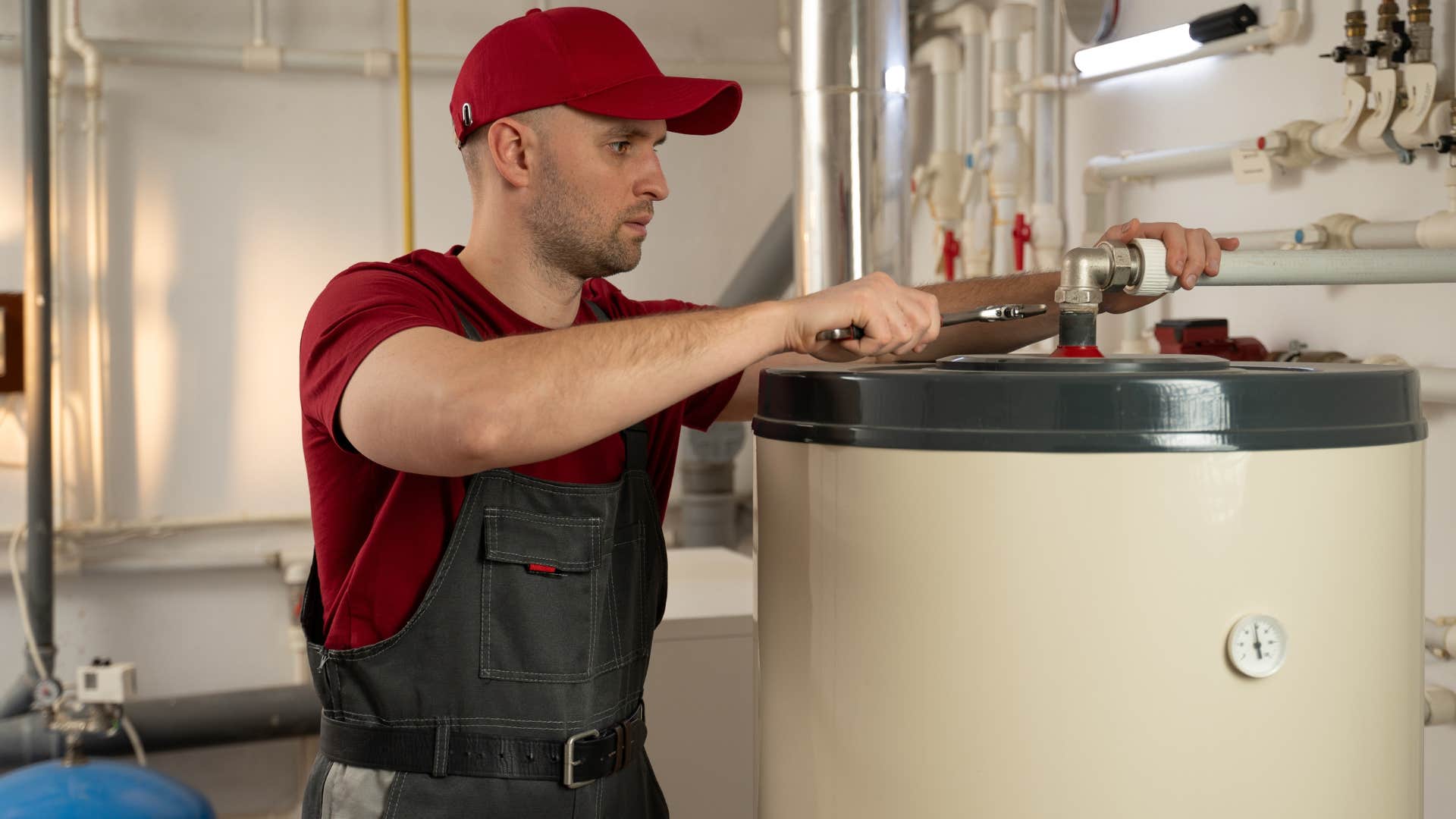11 Things People Who Grew Up Poor Will Never Waste Money On, Even If They Can Afford It Now
They're far more intentional about how they spend their money.
 michaelheim | Shutterstock
michaelheim | Shutterstock While it's true that many people who grow up experiencing poverty tend to be less financially stable later in life, there are still financial habits and frugal mentalities that can healthily follow them into their adult lives. From being more intentional about spending to living within their means, sometimes these childhood experiences can set them up to find stability later in life.
Many of the things people who grew up poor will never waste money on, even if they can afford it now, set them apart from their wealthier counterparts who may spend more impulsively on things they don't need. Whether it's home decor, certain groceries, or experiences, they tend to be far more protective and intentional about how and where they spend their money, even if they have a lot of it now.
Here are 11 things people who grew up poor will never waste money on, even if they can afford it now
1. Service for basic repairs
 Grustock | Shutterstock
Grustock | Shutterstock
Considering many adults who grew up in poverty tend to develop independence and autonomy much earlier than their wealthy counterparts, according to a study from Family Relations, it's not surprising that they're more likely to learn a skill rather than waste money on hiring someone else's labor.
Whether it's a basic car issue, a plumbing situation, or a squeaky door in their home, they'd prefer to invest time in learning a skill that will serve them life, rather than wasting money on overpriced labor from a service person. For people who grew up wealthy, they may immediately go to outsourcing labor to protect their time, but for those who grew up in poverty, they're more interested in learning it themselves, even if they can afford it.
2. Brand-new clothes
 maxbelchenko | Shutterstock
maxbelchenko | Shutterstock
For people living in poverty who had to grapple with being unable to feed into trend cycles, fast fashion, and other consumerist cycles, it's not surprising that brand-new clothes are one of the things they'll never waste money on, even if they can afford it. While other Americans spend nearly $2,000 on new clothes every year, people who grew up poor tend to avoid spending on it at all, especially when they don't actually need them.
Even if they have financial stability now, they understand the fragility of money and security, so they're not afraid to continue leaning on secondhand options, hand-me-downs, and thrift stores to buy clothing when they need it. Even if it means picking up a skill like sewing and investing in a sewing kit, they'd prefer to continue reusing and reimagining their closets than buying new clothing that doesn't even have the quality standards to last.
3. Luxury groceries
 hedgehog94 | Shutterstock
hedgehog94 | Shutterstock
While adults from wealthy backgrounds have been conditioned into believing price equates to quality, poor people are more intentional about what they buy and how they spend their money. When it comes to basic necessities like groceries, they tend to follow frugal habits — shopping at specific low-cost locations and planning out their grocery lists ahead of time to save money.
They don't waste money shopping at luxury grocery stores or organic hotspots in the name of nutrition, especially when they can get similar quality products from their local grocers.
While people who grew up in poverty are more likely to experience obesity in adulthood because of a range of health, money, and nutrition factors, according to a research report from Appetite, it's possible for people to be intentional about wasting money on fast food, while still buying into nutrition in a low-cost way.
4. Going out regularly
 Jose Calsina | Shutterstock
Jose Calsina | Shutterstock
Whether it's getting an overpriced coffee before work, meeting up with friends for drinks, or going out to a restaurant regularly, these are some of the things people who grew up poor will never waste money on, even if they can afford it. Of course, it's important for them to be social and maintain relationships — even if it means spending a little bit of money for quality time together — but to maintain this habit regularly, it can grow toxic.
Avoiding these situations and saying "no" to going out is how they protect themselves from wasting money, even if it tends to occasionally spark embarrassment or guilt, like a study from the Journal of Economic Psychology suggests, similar to that of their childhood experiences around money.
5. New cars
 Rido | Shutterstock
Rido | Shutterstock
While wealthy people may be more likely to overspend on a luxury car that won't last or a brand-new car that will significantly depreciate in value within the first month of ownership, people who grew up poor will never waste money on them. They're much more likely to drive an older car or purchase a used one than to waste money on an "investment" that will never pay off.
According to a Consumer Reports study, many people who grew up poor or continue to live in working-class situations tend to gravitate toward a few common cars when they're purchasing, but for the most part, they avoid anything that's brand new.
6. Coffee
 insta_photos | Shutterstock
insta_photos | Shutterstock
According to a survey from Drive Research, some American consumers are spending nearly $50 a month buying coffee from coffee shops or restaurants outside of their home. For people who grew up wealthy — focused more on saving time and making their lives more convenient — it's likely a force of habit, but for people who grew up poor, they're far more intentional about saving money and crafting efficient habits.
That's why they're much more likely to invest in things to make coffee at home. The overpriced alternatives are one of the things people who grew up poor will never waste money on, even if they can afford it.
7. Single-use water bottles
 Mimagephotography | Shutterstock
Mimagephotography | Shutterstock
Even if they can afford to overspend on single-use products and convenient plastic water bottles in their day-to-day lives, people who grew up poor know that convenience is often a waste of money in the long run.
According to a study conducted by Penn State University, the average person spends more than $1,300 annually on plastic water bottles a year, compared to nothing for people who invest in one stainless steel or reusable water bottle. Even if it takes more effort, planning, and intention, people who grew up living in poverty are used to sacrificing a bit of convenience to save money they'd prefer to invest and spend on other things.
8. Weddings
 SeventyFour | Shutterstock
SeventyFour | Shutterstock
According to a Fidelity study, the average American spends more than $33,000 on their own wedding, so it's not surprising that people who grew up poor are more intentional about planning this big day. Even if it means eloping, having a smaller party, or investing that money into another larger, more sustainable purchase, like real estate, they'd prefer to not waste money on something just because society tells them they have to.
The same goes for other people's weddings; they're not going to say "yes" to being in the bridal party unless they have the financial means to do so, and even if they do, they're careful about where they're spending their money.
9. Seasonal decorations
 Gala AP | Shutterstock
Gala AP | Shutterstock
Even though decorating for the holidays and having seasonal decorations can be a fun transition and event for everyone, it's one of the things people who grew up poor will never waste money on year-after-year. Yes, they might have a few decorations in storage that they bring out for the holidays, but they're never overspending on brand-new home decor for every season.
According to a Rocket Homes survey, the average person spends nearly $300 on holiday decorations alone and another $550 on gifts for their loved ones every year. However, for many people who grew up poor — making DIY decorations and shopping at low-cost stores — it's become a habit to avoid consumerist trend cycles that urge people to overspend.
10. Online shopping
 PeopleImages.com - Yuri A | Shutterstock
PeopleImages.com - Yuri A | Shutterstock
According to a study from the Journal of Consumer Affairs, many people who live in poverty aren't favored when it comes to infrastructure. Whether it's access to a grocery store or walkable streets, they're often forced to invest in transportation to make purchases and navigate their daily lives. For that reason, shopping online can be convenient, but many are careful about the way pressures to impulse and emotional shopping heighten online.
While the average American spends nearly $200 on online purchases, food deliveries, and convenience spending on the Internet every month, people who grew up in poverty are much more intentional about what they buy — both online and in-person. They grew up living in a "scarcity mindset" that doesn't just go away when they move out and start making their own money.
11. Trendy home decor
 Prostock-studio | Shutterstock
Prostock-studio | Shutterstock
Whether it's trendy decorations, fast fashion, or fancy furniture that lacks personality or quality, trend cycles are one of the things people who grew up poor will never waste money on, even if they can afford it.
While the allure of buying into trends is often deeper than just having the money to afford it — it buys belonging, identity, and community for many people — it's still something people who grew up poor are careful about feeding into.
Zayda Slabbekoorn is a staff writer with a bachelor’s degree in social relations & policy and gender studies who focuses on psychology, relationships, self-help, and human interest stories.

